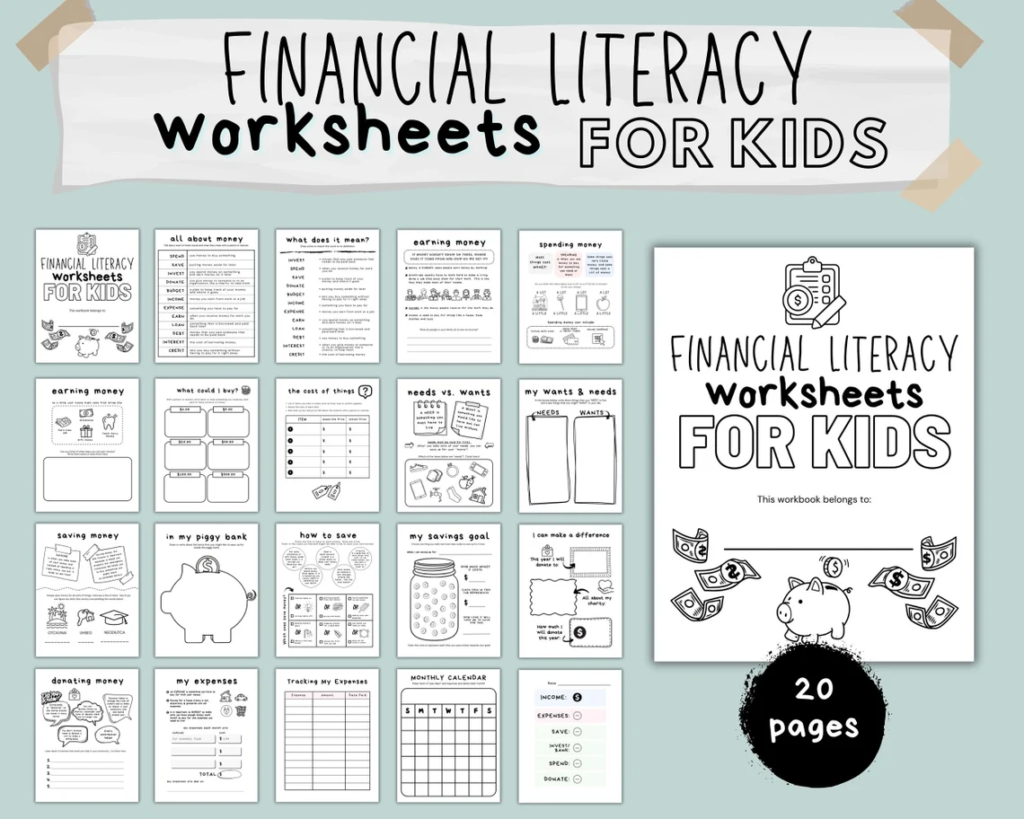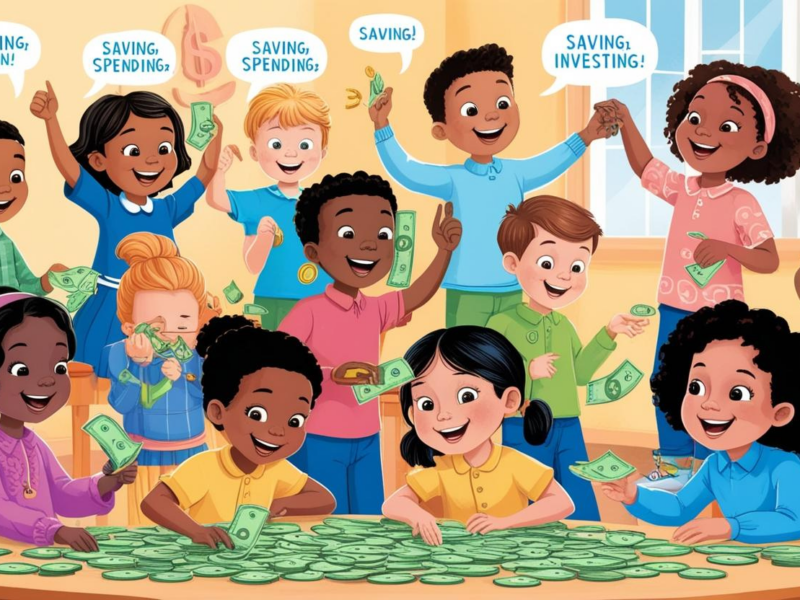Why do we teach kids to save money? It’s simple. Financial literacy is one of the most vital life skills, yet it’s often overlooked in early education. Saving money isn’t just about putting coins in a piggy bank; it’s about building a mindset that will help kids navigate the financial challenges of adulthood. Quotes about money can be powerful teaching tools, encapsulating wisdom in bite-sized chunks that are easy for kids to grasp and remember. These little nuggets of wisdom can inspire children to develop good financial habits that will last a lifetime.
“A Penny Saved is a Penny Earned” – Benjamin Franklin
This classic quote by Benjamin Franklin is a staple in the world of financial advice, and for good reason. It teaches kids that every penny counts. The concept is simple: when you save money instead of spending it, you’re effectively earning that money. It’s a lesson in valuing even the smallest amounts of money, which can accumulate into something significant over time. By understanding the value of each penny, children learn the importance of saving and begin to appreciate how small savings can grow into big opportunities.
“Save Your Money and One Day It Will Save You” – Anonymous
This quote introduces the idea of a financial safety net, which is a crucial concept for children to understand. By saving money, kids learn to plan for the unexpected. Whether it’s an emergency or an opportunity, having savings can be a lifesaver. Encouraging children to save with this mindset helps them think beyond the immediate moment and consider their future. It instills the understanding that the money they save today could be the key to solving a problem tomorrow.
“Do Not Save What is Left After Spending, But Spend What is Left After Saving” – Warren Buffet
This gem from Warren Buffet flips the traditional approach to spending and saving on its head. Rather than saving whatever’s left after spending, Buffet advises us to save first and then spend what’s left. This concept teaches kids the importance of prioritizing savings over discretionary spending. It’s a lesson in budgeting—by setting aside money for savings first, kids learn to live within their means and avoid unnecessary debt. It’s a strategy that can set them up for financial success throughout their lives.
“The Art is Not in Making Money, But in Keeping It” – Proverb
Earning money is only half the battle. This proverb highlights the importance of maintaining wealth through mindful spending. It teaches kids that the real challenge lies not in making money, but in keeping it. Instilling this mindset encourages children to think carefully before spending and to value the money they’ve earned. It’s a lesson in sustainability, showing that wealth isn’t just about how much you make, but how well you manage what you have.
“The Rich Invest in Time, The Poor Invest in Money” – Warren Buffet
This quote encourages a shift in perspective from material wealth to the value of time. By investing in experiences and education, kids learn that not all investments are monetary. Teaching children to value their time and invest it wisely—whether in learning new skills, helping others, or pursuing their passions—helps them develop a well-rounded approach to life. It’s a lesson that emphasizes the importance of long-term thinking and the idea that wealth isn’t just about money, but about how you choose to spend your time.
“Wealth Consists Not in Having Great Possessions, But in Having Few Wants” – Epictetus
Epictetus, the ancient Greek philosopher, offers a profound perspective on wealth. This quote teaches kids that true wealth isn’t about accumulating things, but about being content with what you have. It’s a lesson in simplicity and contentment, encouraging children to focus on what’s truly important rather than always wanting more. By reducing the desire for unnecessary possessions, kids can learn to save more and spend less, leading to greater financial security and happiness.
“A Little Frugality Goes a Long Way” – Anonymous
Frugality might sound old-fashioned, but it’s a concept that can serve kids well throughout their lives. Being frugal doesn’t mean being cheap; it means being smart with your money. This quote encourages kids to find creative ways to save, whether through DIY projects, repurposing items, or simply making thoughtful choices about their spending. By embracing frugality, children learn that saving money doesn’t have to be a chore—it can be a fun and rewarding challenge.
“Beware of Little Expenses; A Small Leak Will Sink a Great Ship” – Benjamin Franklin
Another gem from Franklin, this quote emphasizes the importance of monitoring small, regular expenses. Even the smallest leaks can eventually sink a ship, and the same goes for finances. Teaching kids to be aware of where their money goes, even in small amounts, helps them develop good habits that can prevent financial trouble down the road. By identifying and avoiding these “leaks,” children can ensure that their savings stay afloat.
“Money, Like Emotions, Is Something You Must Control to Keep Your Life on the Right Track” – Natasha Munson
Money and emotions are closely linked, and this quote by Natasha Munson captures the essence of that relationship. Teaching kids to control their emotions when it comes to money is crucial for developing healthy financial habits. Whether it’s avoiding impulsive purchases or managing the stress of financial challenges, kids need to learn that controlling their money is key to keeping their life on track. It’s a lesson in emotional intelligence as much as it is in financial literacy, showing that the way we handle money can have a profound impact on our overall well-being.
“It’s Not About Having a Lot of Money, But About Knowing How to Manage It” – Anonymous
This quote highlights the importance of financial management over mere accumulation. It teaches kids that wealth isn’t just about how much money they have but how well they manage what they possess. By focusing on money management skills like budgeting, saving, and investing, children can learn to make the most of what they have, regardless of the amount. This wisdom encourages a mindset that values financial acumen and responsibility over sheer wealth, laying the foundation for a stable and secure financial future.
Conclusion: Planting the Seeds of Financial Wisdom Early
Teaching kids about money doesn’t have to be a dry or daunting task. With the right quotes and a little creativity, financial literacy can become a fun and engaging part of a child’s education. These sayings, packed with timeless wisdom, serve as easy-to-understand lessons that can inspire children to develop healthy money habits from a young age.
By embedding these concepts early, we plant the seeds for a future where they can navigate the financial world with confidence, mindfulness, and a solid foundation of knowledge. After all, the financial lessons we impart today will shape the savers, investors, and financially savvy adults of tomorrow.









Such important values about money! Thank you for sharing!